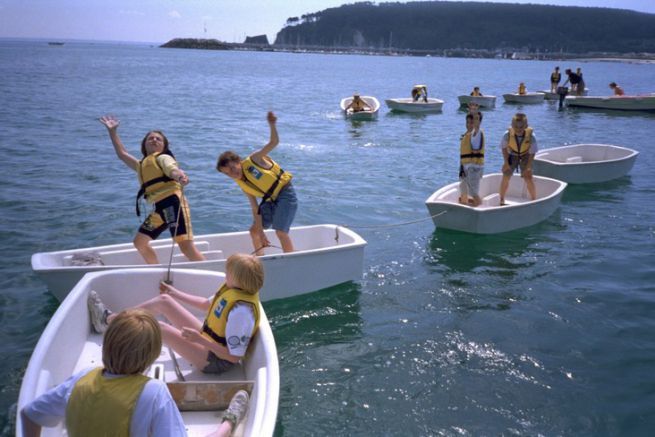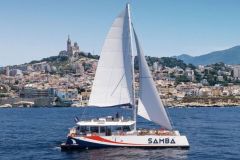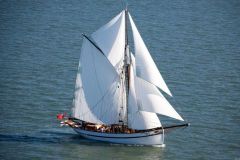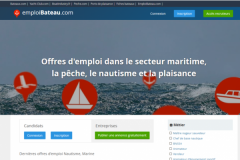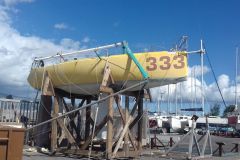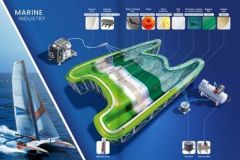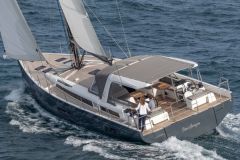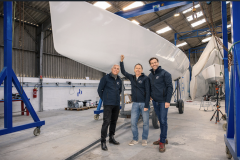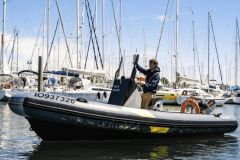A slowing marine industry
euros at the close of 2019, the nautical subsidiary represents 5.3 billion in sales (services, large yachts, rentals, etc.) within the French economic landscape. The industry employs 44,000 permanent and fixed-term employees, not including temporary jobs linked in particular to seasonal activities, which are strong job creators.
Exports account for 76.8% of French production, a figure that is increasing year by year. In fact, 9 out of 10 boats are destined for international markets. "This figure can be explained by the quality of the products, but also by a French market that is not very dynamic compared to the international market, explains the president of the FIN.
Yves Lyon-Caen adds that "the industry lives by these shows and that there are fairly strong continuities of past trends. For example, continental Europe is trending well, the UK trend is suffering from the stress of Brexit and the North American continent is slowing down. The landscape tends to lean towards a certain slowdown with some market segments that may be more impacted than others (sailing, motor, monohull, multihull)."
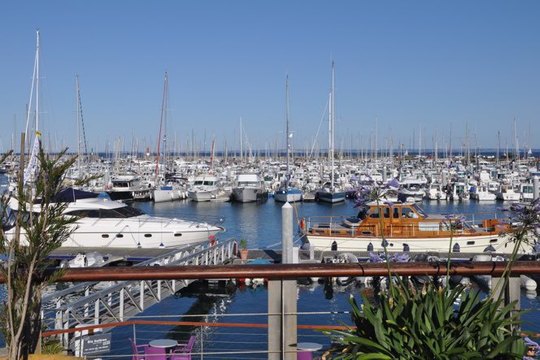
The 3 main challenges of the nautical industry
"These are subjects on which our industrial future and the future competitiveness of our sector are at stake" introduced Yves-Lyon Caen.
1 euros Driving the ecological transition while remaining competitive through innovation
The idea is to create eco-organizations and implement new approaches in response to the ecological transition:
Materials and circular economy . These are issues that affect resins and fibers and require close collaboration with the plastics and chemical industries . "What materials will we be using in 5 or 10 for the circular economy? Nobody knows."
Propulsion : "We can welcome the return of the velvet propulsion, the return to the roots of our industry with the use of kite, foil, hydrogen and hybrid engines". This is a very important area for the FIN, which does not imagine how to provide innovative answers and relies on the automotive sector, which has "the major responsibility to be at the head of the rope". It is in this sense that the Federation of Nautical Industries has developed collaborations with the automotive industry for the storage and management of energy.
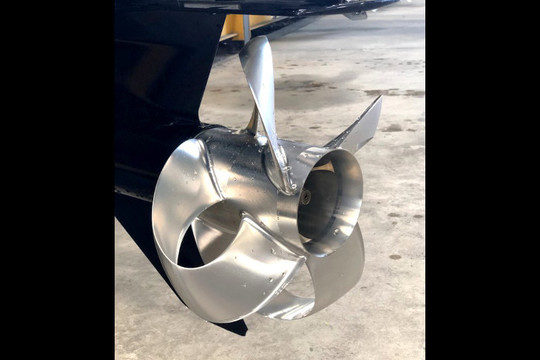
The respect of the natural environment in which yachting is practiced . We are talking about the "challenge of dealing with the issue of moorings and meeting the requirement of non-discharge (wastewater, wastewater)". To do this, FIN wants to develop a circular economy in collaboration with marinas.
2 euros Winning over new customers
"We need to recapture and conquer these new generations through the sharing economy, service, digitalized offerings in all their forms and with ambition that our products evolve."
The problem of renewing the boating population is always at the heart of FIN's missions. Today, the practice evolves and new ways of "consuming" water sports are born to seduce "a new, young, festive and versatile target that represents the new customers of tomorrow."
"The forms of reception are diversifying "This can be done through daily rentals or boat club systems. "In these, there is usually a welcoming, introductory or learning phase for the uninitiated." through the classic rental offers, it is also possible to hire the services of a skipper or to train via an instructor. In 2019, rental has increased by 10%, which clearly shows that "the consumption of boating is no longer the same."
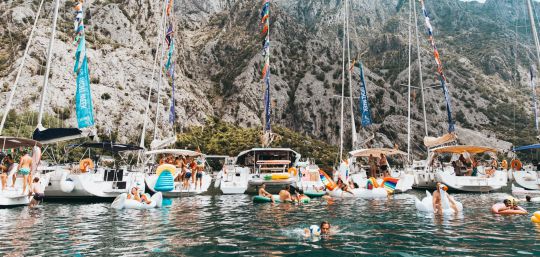
"There is a more festive dimension to boating than we have known. The boat being a platform of escape for young people. If some have sailing experience, others come to participate in a festive escape. That's growing by the way in the sharing economy, with the possibility of using a skipper or a companion for a common crossing and so this lack of experience doesn't present any additional safety risk."
However, Yves Lyon-Caen is not worried about the evolution of yachting and its practices. "Regular boaters are less numerous, but this does not mean that boating does not continue to develop, but in a different way (rental, boat club). Those who go boating from time to time will one day be regular boaters if they have the time and money to practice regularly? It's all a question of availability of time, money, culture and behavior."
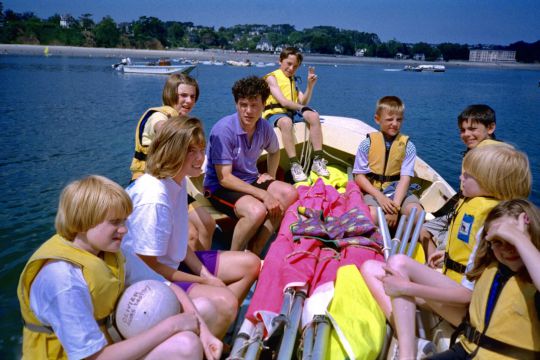
From the beach to sailing
For the Nautical Industries Federation, everything happens on the beach. It is by frequenting the beaches that future boaters will be born. "For many young people, boating comes through the beach. By practicing water activities, such as paddle boarding or kiteboarding they then turn to boating."
However, this statement would need to be backed up by figures. "We don't have a conversion rate for nautical initiation practice from beach activities, but it would be interesting to work with organizations like the Glénans or UCPA to get some."
3 euros Employment: winning the battle for attractiveness and new qualifications
Manual trades are attracting fewer and fewer young people and nearly forty sites and companies are having difficulty recruiting, both for classic trades such as electricians and mechanics, and for more specific trades such as laminators
"We need to ensure generational succession that affects all industries and retirements of all those who entered our industries in the 70s/80s."

